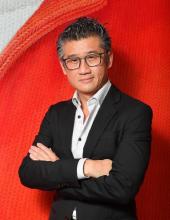After 20 years in Canada — 7 spent practicing community oncology near Toronto — Dr. Mok was visiting family in his native Hong Kong back in 1996 when a job offer there enabled him to revive his early dream of doing academic research. Dr. Mok and his family moved back home just before the former British colony was returned to China in 1997.
That leap of faith helped Dr. Mok play a role in the global paradigm shift on treating lung cancer. He chairs the department of clinical oncology at the Chinese University of Hong Kong. A leader in ushering in targeted therapies and personalized medicine in China and globally, he has helped advance the goal of transforming lung cancer from a death sentence to a chronic disease.
Among Dr. Mok’s other accomplishments, he has published eight books and more than 200 journal articles. Since 2006, he has been writing a twice-weekly column in the Hong Kong Economic Times. At the annual meeting of the American Society of Clinical Oncology (ASCO), Dr. Mok sat down with this news organization to discuss his latest findings, his career path, and China’s ever-growing presence in multinational clinical trials, pharmaceuticals, and cancer research in general.
Question: At ASCO 2024 in Chicago, you presented as first author of the KRYSTAL-12 study. Can you give a short “elevator speech” summarizing those findings?
Dr. Mok: KRYSTAL-12 is a randomized phase 3 study comparing adagrasib with docetaxel in patients with previously treated advanced/metastatic non–small cell lung cancer harboring a KRAS G12C-mutation. And the findings are positive, with a median progression free survival of 5.5 months vs 3.8 months, with a significant hazard ratio [of 0.58]. And then there are also differences in their response rates of 32% versus 9%, and that gives you an [odds] ratio of 4.86. So yes, it’s significant.
Question: Now that you’ve given this presentation and perhaps taken some good, meaningful questions about it, are there any further points you’d like to make — anything you’d like to add?
Dr. Mok: You have to understand that whatever I said has been scrutinized by the pharmaceutical company, but now I can say whatever I like. I think the key point is that we actually have made the first so-called achievement in the KRAS G12C space. But this is only the beginning.
I want to note that the median progression-free survival is different, but not the best. The median 5.5 months result is good, but not good enough. So, we still have to work hard to answer the question: How can we best deliver care to patients with KRAS G12C?


